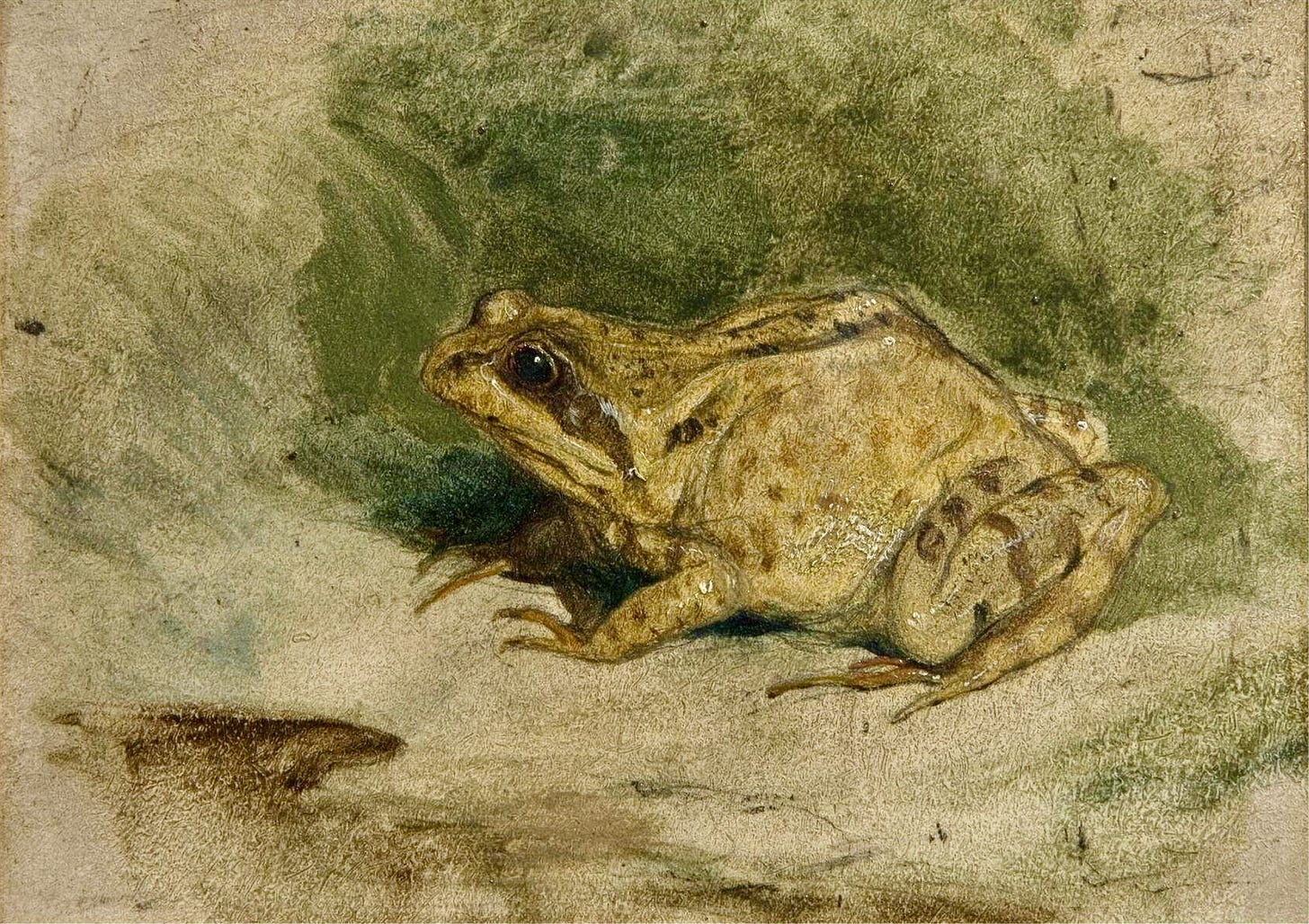Today’s Poem: Ode to an Expiring Frog
Mrs. Leo Hunter’s most acclaimed work, channeled by Charles Dickens

Ode to an Expiring Frog
by Charles Dickens
Can I view thee panting, lying On thy stomach, without sighing; Can I unmoved see thee dying On a log, Expiring frog! Say have fiends in shape of boys With wild halloo, and brutal noise Hunted thee from marshy joys, With a dog, Expiring frog!
Keep reading with a 7-day free trial
Subscribe to Poems Ancient and Modern to keep reading this post and get 7 days of free access to the full post archives.



